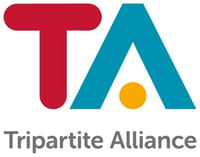[Business Continuity Strategy] [Template 2]

Business Continuity Strategy
CBF-1 Dispute Management and Advisory Services (via TADM)
Recovery Strategies
Tripartite Alliance Limited (TAL), through its Tripartite Alliance for Dispute Management (TADM), plays a crucial role in promoting harmonious employment relations by effectively managing and resolving workplace disputes.
The Dispute Management and Advisory Services function (CBF-1) is central to TAL’s operations, ensuring fair and timely resolution of employment-related disputes through structured advisory and mediation services.
To ensure continuity of these vital services during a disruption, it is essential to define clear recovery strategies for each Sub-Critical Business Function (Sub-CBF) within CBF-1.
These strategies encompass the necessary recovery time objectives (RTOs), recovery locations, specific measures to restore operations, and the justification for each approach.
The following table outlines the comprehensive recovery strategies for each Sub-CBF, tailored to TAL’s operational priorities and stakeholder expectations.
Table 2: Recovery Strategies for CBF-1 Dispute Management and Advisory Services (via TADM)
|
Sub-CBF Code |
Sub-CBF |
RTO |
Recovery Strategy |
Recovery Location |
Details of Recovery Strategy |
Justification for Selected Recovery Strategy |
|
1.1 |
Case Intake and Assessment |
4 hours |
Alternate Site + Remote Work |
Pre-identified alternate site & remote platform |
Equip case officers with secure remote access tools; enable hot-desking at an alternate location. Enable call forwarding from the hotline to staff devices. |
Timely intake is crucial to prevent backlog and stakeholder frustration. Alternate site and remote access ensure seamless intake operations. |
|
1.2 |
Advisory and Pre-Mediation Support |
8 hours |
Remote Work + Phone/Online |
Remote via cloud-based platforms |
Utilise digital communication tools (Zoom, MS Teams) and secure document sharing for advisory sessions. Hotline and email access are maintained via cloud systems. |
Pre-mediation support is often time-sensitive. Remote work ensures continuity with minimal physical dependencies. |
|
1.3 |
Mediation Services |
24 hours |
Hybrid: Alternate Site + Virtual Mediation |
Mediation-capable alternate venue & online mediation tools |
Activate virtual mediation via secure platforms; use an alternate physical location for urgent in-person sessions. |
Ensures access to mediation even during site disruptions, maintaining stakeholder confidence and legal timelines. |
|
1.4 |
Enforcement and Referral Support |
48 hours |
Remote Work |
Remote-enabled access via secure systems |
Maintain secure access to databases and templates. Referrals to enforcement agencies coordinated via email/secured portal. |
Not immediately critical but necessary to ensure enforcement continuity and downstream resolution. |
|
1.5 |
Stakeholder Engagement and Case Escalation |
24 hours |
Remote Work + Mobile Communication |
Remote via mobile and virtual tools |
Engage partners and ministries via existing channels (email, secured chat). Pre-drafted escalation protocols are activated via mobile. |
Ensures escalation pathways are maintained without disruption to public confidence. |
|
1.6 |
Records Management and Case Closure |
48 hours |
Remote Access to Digital Archive |
Cloud storage with audit trail |
Archive access enabled via secure cloud with encryption and role-based access; backup maintained offsite. |
Maintains the integrity of case data and enables closure processing with compliance assurance. |
|
1.7 |
Crisis Communication and Continuity Activation |
1 hour |
Immediate Activation via BCM Protocols |
On-site & mobile access |
Communication templates pre-approved; BCM team initiates alerting system and communicates with internal and external stakeholders via SMS, email, website. |
Critical to ensure accurate and timely information dissemination to all stakeholders and instill confidence in TAL’s continuity capabilities. |
Explanation of Key Elements
- Recovery Time Objectives (RTOs) are based on operational priorities; for example, communications must resume within 2 hours, while archival work can tolerate up to 48 hours of downtime.
- Recovery Locations include alternate courthouses, off-site operation centres, or cloud-based environments to provide redundancy.
- Recovery Strategies integrate manual procedures (e.g., paper forms, spreadsheets) with digital backup systems, aligning with best practices outlined in the BCM Institute's mitigation framework.
- Justifications ensure the approach is balanced, maintaining continuity, protecting the integrity of judicial processes, yet resilient to system or location failures.
Summing Up ... for T2 Recovery Strategies
The recovery strategies outlined for the Dispute Management and Advisory Services function at Tripartite Alliance Limited (TAL) are meticulously crafted to support continuity of operations in the face of disruptions.
Each strategy ensures that core activities—from case intake and advisory to mediation and stakeholder communication—are swiftly recoverable within an acceptable timeframe.
The integration of alternate sites, remote work capabilities, and digital platforms provides TAL with the agility to maintain service quality while safeguarding public trust.
These proactive measures underscore TAL’s commitment to resilience and responsiveness, reinforcing its role as a cornerstone of Singapore’s fair employment ecosystem.





![[BCM] [TAL] [E3] [BCS] [T2] [CBF] [1] Recovery Strategies](https://no-cache.hubspot.com/cta/default/3893111/b4cbdf20-029f-4a56-bdf1-061ead0c0751.png)
![[BCM] [TAL] [E3] [BIA] MBCO Corporate MBCO](https://no-cache.hubspot.com/cta/default/3893111/9080a06b-c2f0-4a72-988a-4cd13ce54f47.png)
![[BCM] [TAL] [BIA] [P&S] Key Product and Services](https://no-cache.hubspot.com/cta/default/3893111/307ac053-1aed-4e21-b430-f356dd86bc3c.png)
![[BCM] [TAL] [E3] [RAR] [T1] List of Threats](https://no-cache.hubspot.com/cta/default/3893111/8c1a66cb-c0ae-4de9-9d03-8887d6d6788b.png)
![[BCM] [TAL] [E3] [RAR] [T2] Treatment and Control](https://no-cache.hubspot.com/cta/default/3893111/3b9018e6-d96e-4bfa-84b6-deb76c12ec26.png)
![[BCM] [TAL] [E3] [RAR] [T3] Risk Impact and Likelihood Assessment](https://no-cache.hubspot.com/cta/default/3893111/0b422c49-9f00-4c20-be6e-4be73551cb59.png)
![[BCM] [TAL] [E3] [BCS] [T1] Mitigation Strategies and Justification](https://no-cache.hubspot.com/cta/default/3893111/1670f67f-f97f-42d9-bdc8-ce26cc17f035.png)
![[BCM] [TAL] [E1] [C10] Identifying Critical Business Functions](https://no-cache.hubspot.com/cta/default/3893111/03d6ce68-f61f-4fdf-bbfe-0fb4921f10c7.png)
![[BCM] [TAL] [E3] [BIA] [DP] [CBF] [1] Dispute Management and Advisory Services (via TADM)](https://no-cache.hubspot.com/cta/default/3893111/fa99579d-3ea6-4ce4-bdc3-59990b67050a.png)
![[BCM] [TAL] [E3] [BIA] [T1] [CBF] [1] Dispute Management and Advisory Services (via TADM)](https://no-cache.hubspot.com/cta/default/3893111/fcb583ea-4ac0-4cc6-b48e-9f487b31574e.png)
![[BCM] [TAL] [E3] [BIA] [T2] [CBF] [1] Dispute Management and Advisory Services (via TADM)](https://no-cache.hubspot.com/cta/default/3893111/2cc73eb6-95eb-4a5f-91c2-48762fb97f32.png)
![[BCM] [TAL] [E3] [BIA] [T3] [CBF] [1] Dispute Management and Advisory Services (via TADM)](https://no-cache.hubspot.com/cta/default/3893111/d4863fde-e9d8-4107-94e0-a46ac2d39a76.png)
![[BCM] [TAL] [E3] [BCS] [T3] [CBF] [1] Minimum Resources Required during a Disaster](https://no-cache.hubspot.com/cta/default/3893111/056923e5-8bfb-47bb-a2e1-fc93b9241f88.png)
![[BCM] [TAL] [E3] [PD] [CBF] [1] Dispute Management and Advisory Services (via TADM)](https://no-cache.hubspot.com/cta/default/3893111/81039579-840a-4cfb-8fe8-44d3ec828153.png)


![Register [BL-B-3]*](https://blog.bcm-institute.org/hs-fs/hubfs/hub_generated/resized/19a8306f-6b76-45ff-8585-95111f393aeb.png?width=200&height=56&name=19a8306f-6b76-45ff-8585-95111f393aeb.png)



![FAQ [BL-B-3]](https://blog.bcm-institute.org/hs-fs/hubfs/hub_generated/resized/9b7f5669-8ad6-450b-a98f-5f5d49ebfc8e.png?width=150&height=150&name=9b7f5669-8ad6-450b-a98f-5f5d49ebfc8e.png)
![Email to Sales Team [BCM Institute]](https://blog.bcm-institute.org/hs-fs/hubfs/hub_generated/resized/83ae9ad3-affc-416e-8f51-64218d6d98f2.png?width=100&height=100&name=83ae9ad3-affc-416e-8f51-64218d6d98f2.png)





